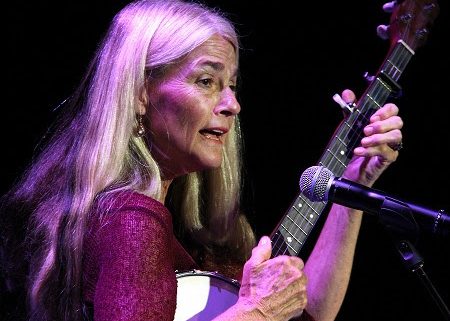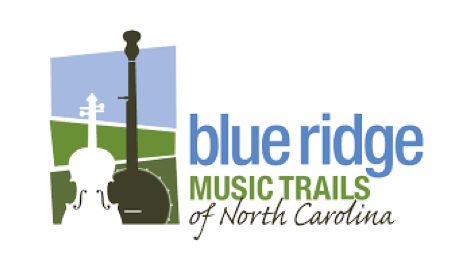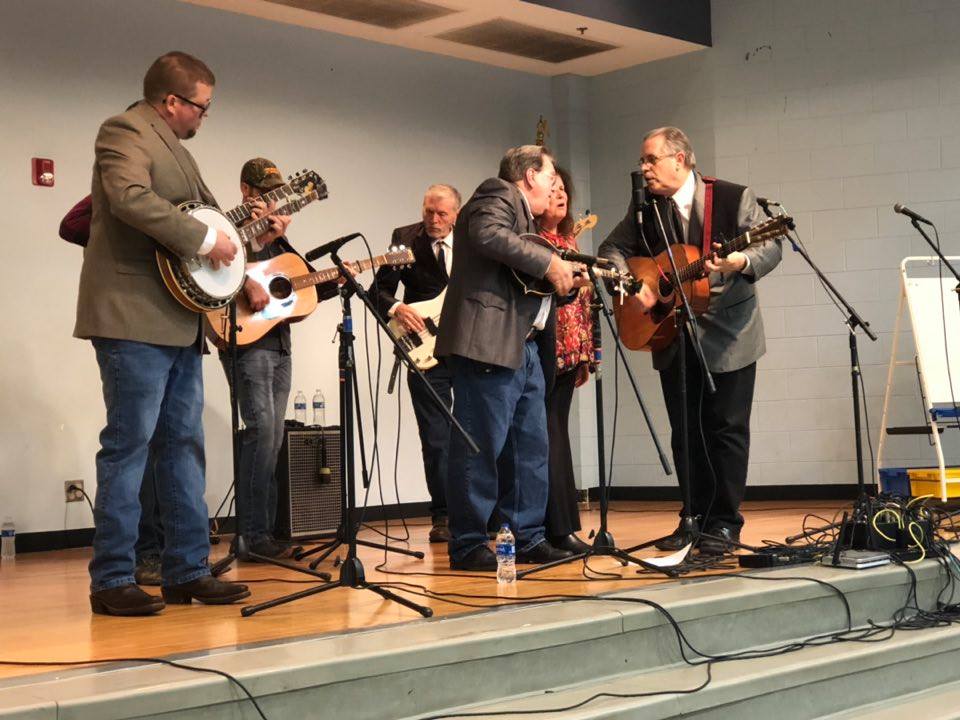
Tuesday, January 24th, 2023 – Trash Trout Motion Picture Show – 6:00 pm – 7:00 pm.
Please join the Blowing Rock Art & History Museum along with project artists and collaborators in closing the Trash Trout Picture Show exhibition Tuesday, January 24, at 6 PM in BRAHM’s Alexander Community Gallery.
Filmmaker and visual artist Tom Hansell, in collaboration with local river protectors, has spent the last two years salvaging river trash and creating works of art from the refuse collected.
His work with The Watauga Riverkeeper, an essential protector of the Watauga River Watershed, began with the collection of plastic bags and other detritus from a passive stormwater debris collector nicknamed the Trash Trout and culminated in a series of participatory workshops: more than fifty local residents taped trash from the river to 16mm film strips. Similarly, Hansell worked with the New River Conservancy on river cleanups, then transformed reclaimed plastic bags into sculptures. The resulting film and sculptural works are currently displayed alongside images documenting microplastic pollution in local waterways in BRAHM’s Alexander Community Gallery. To close the exhibit, BRAHM will host a performance of the Trash Trout Motion Picture Show featuring local musicians and dancers, Trevor McKenzie and Julie Shepherd-Powell, who will perform a live soundtrack as the film is projected.
Hors d’oeuvres and a wine bar will be provided. We look forward to sharing the dynamic work on display with you
Thursday, January 26th, 2023 – Square Dancing in Wilson Education Center – 6:00 pm – 8:00 pm.
Join us for a special Winterfest Square Dance! The dance will take place in the Wilson Education Center at BRAHM. If you have never square danced before or are a little rusty there will be instruction from 6 pm – 6:30 pm. Then the dance will kick off at 6:30 and last until about 8 pm.
Admission to the dance is free. Donations for the band are encouraged.
Saturday, February 18th, 2023 – Sheila Kay Adams – Banjos, Ballads, and Bad Men, 3:00 pm – 5:00 pm
Seventh-generation ballad singer, storyteller, and musician, Sheila Kay Adams will perform pieces from across her repertoire spanning oceans and generations. This event is guaranteed to be fun and engaging for the whole family. A seventh-generation ballad singer, storyteller, and musician, Sheila Kay Adams was born and raised in the Sodom Laurel community of Madison
County, North Carolina, an area renowned for its unbroken tradition of unaccompanied ballad singing that dates back to the early Scots/Irish and English settlers in the mid-17th century. She learned to sing from her great-aunt Dellie Chandler Norton and other notable singers in the community, such as Dillard Chandler and the Wallin family. In addition to ballad singing, she is an accomplished clawhammer-style banjo player and storyteller. In September, 2013, Adams received the nation’s highest honor in the folk and traditional arts – the National Endowment for the Arts National Heritage Fellowship Award which recognizes folk and traditional artists for their artistic excellence and efforts to conserve America’s culture for future generations. In a letter in support of her nomination, George Holt, director of performing arts and film studies at the North Carolina Museum of Art wrote, “Sheila Kay Adams is the key figure in carrying forward to this day the tradition of unaccompanied ballad singing that has enriched her community for more than two centuries, promoting its beauty throughout our country and beyond, and insuring that it will be perpetuated by younger generations of singers well into the 21st century.”
The backup date for this event will be March 11th at 3pm. Sponsored by: The Center for Appalachian Studies at Appalachian State University and Joe Shannon’s Mountain Home Music
This event is free but pre-registration is encouraged as they are limited to 90 seats.
Thursday, March 9th, 2023 – Deciphering Doc Watson, 11:00 am – 12:00 pm
In this talk, we will explore Doc’s life, influences, style, and look at his legacy. This lecture will be a mix of music, film, family stories, and ethnomusicology. Willard Watson III is originally from Fayetteville, North Carolina, Willard moved to Boone in 2008, but his roots run deep in Watauga County. His great-grandfather and namesake, Willard Watson sr., was a well-known toy carver, moonshiner, and dancer. Willard has a Masters in Appalachian Studies with a concentration in Sustainability and a Bachelor of Science in Sustainable Development both from Appalachian State University. Willard’s academic and volunteer passions intersect on the topic of cultural preservation and community development through the creative arts. From 2010-2014 he was an organizer of the Doc & Rosa Lee Watson MusicFest ‘n Sugar Grove. During his tenure at the MusicFest Willard was able to develop a relationship with Doc & Rosa Lee and spend time with them until their passing in 2012.
Thursday, October 26, 2023 – An Appalachian Murder: Creating the Legend of Tom Dule & Laura Foster with Allison Fredette, 11:00 am – 12:00 pm
In May 1868, Tom Dula was hanged in Statesville, North Carolina, for the murder of his sweetheart, Laura Foster. The prior trial, his second, made national news and reveals much about regional and national understandings of “mountain folk” in the post-Civil War period.
In her talk, Fredette explores the way this real murder became a folk story, both in Western North Carolina and the broader nation. She analyzes press coverage of Tom, Laura, and the alleged accomplice, Anne Melton, and how depictions of them shifted from the postwar period into the early twentieth century, laying the groundwork for the explosive popularity of the song, “Tom Dooley,” from the Kingston Trio, as well as growth of the tourism industry around the man himself.
About the Speaker: Fredette is an assistant professor of history at App State. She earned a B.A. and an M.A. from West Virginia University and completed her Ph.D in American History at the University of Florida. She studies the nineteenth-century American South, as well as the history of marriage, gender, and the family. Her first book, Marriage on the Border: Love, Mutuality, and Divorce in the Upper South during the Civil War, explores the connections between place and attitudes toward marriage and gender roles in the Border South states of Kentucky and West Virginia during the mid-nineteenth century.
Her newest project, Murdering Laura Foster: Violence, Gender, and Memory in Appalachian North Carolina, revisits the infamous 1866 murder case, using gender analysis to study the murder, trial, and associated folk song. App State presents An Appalachian Murder: Creating the Legend of Tom Dula and Laura Foster A lecture by Allison Fredette.
Thursday, November 2, 2023 – Keeping Time: Fiddles, Banjos, Ballads, & Place-keeping with Trevor Mckenzie, 6:00 pm – 7:00 pm
Join App State’s Trevor McKenzie to learn more about Appalachia’s music traditions as a form of creative place-keeping within the region. Place-keeping is the active care and maintenance of a place and its social fabric by the people who live and work there, according to the U.S. Department of Arts and Culture.
Traditional music is a placekeeping tool essential to sustaining regional communities — ballads are a form of community memory, instrumental techniques are a continuum of thoughts and movements from elder members of communities, and tunes bearing the names of mountains or streams lead to a heightened appreciation of regional ecology. Through these examples and more, this program will highlight music’s role in keeping and continuing cultural memories connected to locales across Appalachia.
Appalachia is known worldwide as a wellspring for musical traditions. The appearance of a fiddle or a banjo in a contemporary song often prompts listeners to point to “Appalachian sounds” or artists to cite an “Appalachian flavor” as present within their music. Old-time string bands, ballads, bluegrass, and blues are all directly linked to the region’s vast musical landscape.
These vibrant cultural traditions are often overshadowed by the popular perception that they are relics of Appalachia’s past. While deeply connected to Appalachia’s diverse and expansive history, these music styles are still a functional part of regional communities and are constantly being reimagined in the 21st century.
McKenzie is the Director of the Center for Appalachian Studies at App State. He performs traditional music from along the Blue Ridge Mountains of North Carolina and Virginia, both as a solo artist and with regional string bands.
He has been an instructor for the Junior Appalachian Musician’s program and taught workshops at gatherings such as Augusta Heritage Center’s Old-Time Week and the Floyd Old Time Music Get-Together. His first book, Otto Wood the Bandit: The Freighthopping Thief, Bootlegger, and Convicted Murderer behind the Appalachian Ballads, was published in 2021.











